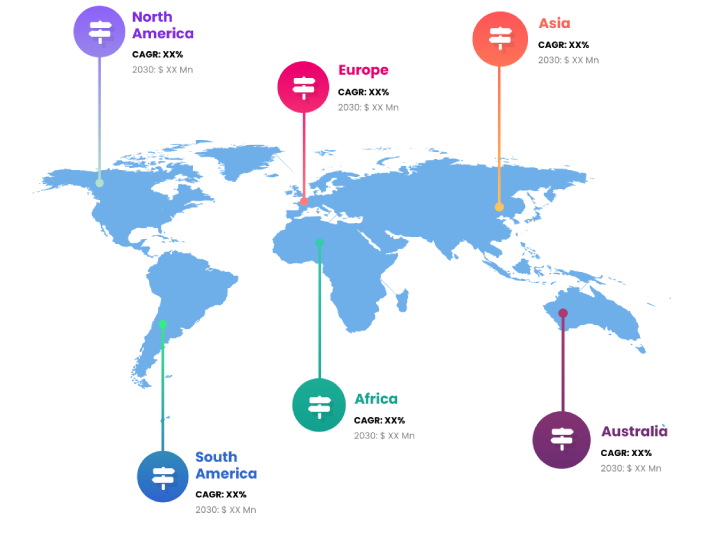
Customer relationship management software, often known as CRM, is a set of tools and methods used by businesses to track and evaluate their relationships with customers from the beginning to the end of their buying journey. The fundamental purpose of customer relationship management software is to keep business ties alive by collecting information about clients across many channels. It aids in the simplification of business operations, the maintenance of client relationships, and the enhancement of profitability.
The value of the market is being propelled by the increasing demand from both businesses and consumers. Our research on the Global CRM Software Market gives you the lowdown on the industry for the next few years. Among the many parts of the study is an examination of the factors and trends that are having a major impact on the sector. The impact of these elements on the market is outlined through the market dynamics' drivers, constraints, opportunities, and challenges.
A customer relationship management (CRM) software system is a multi-functional platform that aids in developing, improving, and retaining your customer relationship. It helps to maintain and manage engagement with the customer. By utilizing a customer analytics tool, a customer relationship management system can automate and combine customer-facing tasks like marketing, sales, e-commerce, and customer service, simplifying even the most intricate engagements.
The software's application aids in comprehending consumer insights, and the customer experience aids in accomplishing the goal and meeting efficiency. Data pertaining to customers, interactions with customers, access to company information, sales automation, lead tracking, contracts, marketing, customer support, clients, contacts, employees, knowledge, training, assets, and resources are all possible with this software.
There is a rising consensus that CRM is essential to a company's success. Strong customer relationship management systems are becoming more important as customer-centric initiatives take center stage for companies in all sectors. Modern technological developments, especially AI and analytics working together, enhance CRM capabilities. This leads to actionable insights, which in turn encourages the growing use of cloud-based CRM systems for personal customer connection, thanks to their scalability and accessibility.
The difficulty in integrating CRM with preexisting systems is a common result of the complexity of CRM deployments, which is a major limitation in the market. Companies with low financial resources may find it difficult to deploy customer relationship management systems due to the high initial and recurring expenditures involved. There are a lot of different kinds of limitations that can arise from CRM implementation, including organizational resistance to change and the necessity for substantial training.
There has been massive growth in the use of artificial intelligence (Al). Similarly, the urge to improve the customer experience by integrating Al with CRM systems is on the rise. Customer relationship management software that uses deep learning, machine learning, and natural language processing helps companies understand their customers' mental health. The software aids companies in developing strong relationships with their consumers by managing and providing solutions based on this data. For example, both Zoho CRM's Zia and Salesforce Einstein offer an Al-powered CRM that gathers client data through voice technologies. Furthermore, this technology is utilized by bots and virtual assistants to automate responses to emails, customer reports, data collecting, and other tasks, hence reducing the likelihood of human error. As a result, the market's size is likely to increase in the near future due to the employment of Al technology.
Report Coverage
Global CRM Software research report categorizes the market for global based on various segments and regions, forecasts revenue growth, and analyzes trends in each submarket. Global CRM Software report analyses the key growth drivers, opportunities, and challenges influencing the global market. Recent market developments and CRM Software competitive strategies such as expansion, product launch and development, partnership, merger, and acquisition have been included to draw the competitive landscape in the market. The report strategically identifies and profiles the key CRM Software market players and analyses their core competencies in each global market sub-segments.
| REPORT ATTRIBUTES | DETAILS |
|---|---|
| Study Period | 2017-2031 |
| Base Year | 2023 |
| Forecast Period | 2023-2031 |
| Historical Period | 2017-2021 |
| Unit | Value (USD Billion) |
| Key Companies Profiled | Adobe Inc., AMDOCS Ltd., Huawei Technologies Co., Ltd., IBM Corporation, Infor, Microsoft Corporation, NetSuite, Inc., NICE Ltd., Oracle Corporation, and Salesforce.com, Inc. |
| Segments Covered | • By Product |
| Customization Scope | Free report customization (equivalent to up to 3 analyst working days) with purchase. Addition or alteration to country, regional & segment scope |
Key Points Covered in the Report
- Market Revenue of CRM Software Market from 2021 to 2031.
- Market Forecast for CRM Software Market from 2021 to 2031.
- Regional Market Share and Revenue from 2021 to 2031.
- Country Market share within region from 2021 to 2031.
- Key Type and Application Revenue and forecast.
- Company Market Share Analysis, CRM Software competitive scenario, ranking, and detailed company
profiles. - Market driver, restraints, and detailed COVID-19 impact on CRM Software
Market
Competitive Environment:
The research provides an accurate study of the major organisations and companies operating in the global CRM Software market, along with a comparative evaluation based on their product portfolios, corporate summaries, geographic reach, business plans, CRM Software market shares in specific segments, and SWOT analyses. A detailed analysis of the firms' recent news and developments, such as product development, inventions, joint ventures, partnerships, mergers and acquisitions, strategic alliances, and other activities, is also included in the study. This makes it possible to assess the level of market competition as a whole.
List of Major Market Participants
Adobe Inc., AMDOCS Ltd., Huawei Technologies Co., Ltd., IBM Corporation, Infor, Microsoft Corporation, NetSuite, Inc., NICE Ltd., Oracle Corporation, and Salesforce.com, Inc.
Primary Target Market
- Market Players of CRM Software
- Investors
- End-users
- Government Authorities
- Consulting And Research Firm
- Venture capitalists
- Third-party knowledge providers
- Value-Added Resellers (VARs)
Market Segment:
This study forecasts global, regional, and country revenue from 2019 to 2031. INFINITIVE DATA EXPERT has segmented the global CRM Software market based on the below-mentioned segments:
Global CRM Software Market, By Component
Software
Services
Global CRM Software market, By Application
Customer Service
Customer Experience Management
CRM Analytics
Marketing Automation
Salesforce Automation
Others
Global CRM Software Market, By Deployment
On-Premise
Cloud
Hybrid
Global CRM Software market, Regional Analysis
- Europe: Germany, Uk, France, Italy, Spain, Russia, Rest of Europe
- The Asia Pacific: China,Japan,India,South Korea,Australia,Rest of Asia Pacific
- South America: Brazil, Argentina, Rest of South America
- Middle East & Africa: UAE, Saudi Arabia, Qatar, South Africa, Rest of Middle East & Africa
You will get in-depth and extensive crm software market market research and competitor analysis for your business to help you develop more profound insights into the crm software market Market.
Through INFINITIVE Data Expert is a professional Market Research services, I will identify the crm software market market size, demand & opportunities, growth rate, and target audience with a comprehensive analysis of your competitors.



